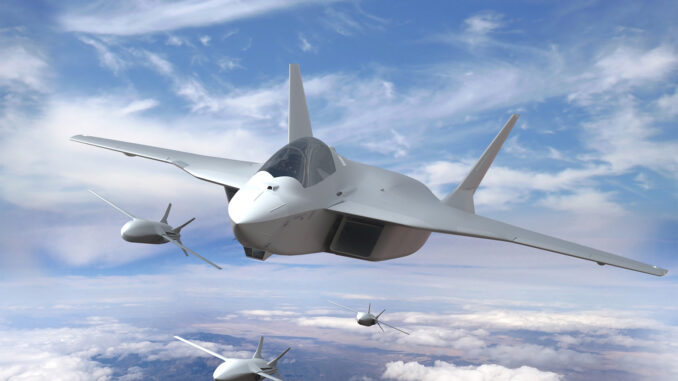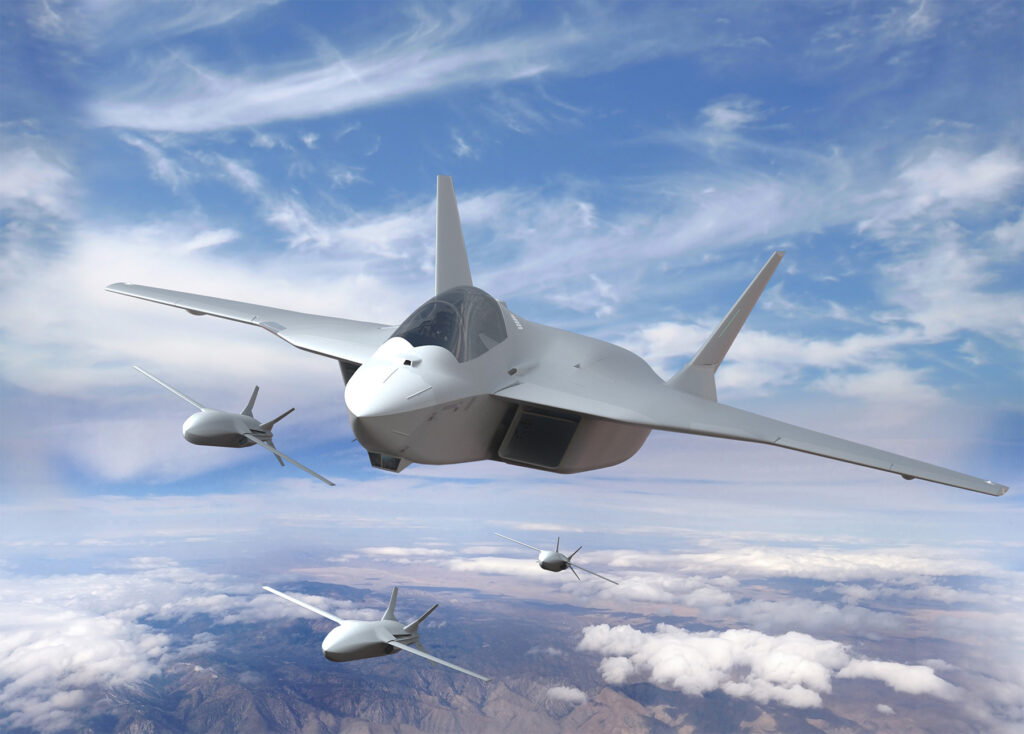
Analysis of the role of artificial intelligence in Europe’s Future Combat Air System (FCAS) and its implications for defence.
The European Future Combat Air System (FCAS), an ambitious programme led by Germany, France and Spain, incorporates artificial intelligence (AI) to revolutionise air warfare. Planned for the 2040s, this system will combine manned combat aircraft and drones, with AI playing a central role in piloting, mission planning and real-time decision-making. This article explores the technical aspects, innovations and challenges associated with AI in the FCAS.
The Future Combat Air System (FCAS) is a next-generation air defence project being developed jointly by Germany, France and Spain, with Belgium as an observer. Scheduled to enter service in the 2040s, the FCAS incorporates advanced artificial intelligence technologies to improve the operational capabilities of Europe’s air forces.
Role of artificial intelligence in the FCAS
UAV integration and automation
One of the main innovations of the FCAS is the use of so-called “loyal wingmen”. These drones, flying alongside manned aircraft, will increase data collection and firepower, and will be able to overwhelm enemy defences by their sheer numbers. The automation and autonomy of drones require high levels of AI to operate without direct manual control.
Numerical examples
Computer simulations show that AI-powered drones maintain connectivity in hostile electronic warfare environments at over 95%, compared with less than 0.5% for centralised cloud-based models.
Communication and data management systems
Autonomous and resilient networks
Munich-based NeuralAgent is developing AI models to ensure continuous communication between FCAS components. These models, operating locally on drones, create redundant and changing data networks, guaranteeing connectivity even in conflict zones.
Technical example
NeuralAgent models are so resource-efficient that they can run on Raspberry Pi microcomputers, requiring less than a gigabyte of space and running Linux.

Redefining the role of drivers
From pilot to mission manager
In the context of the FCAS, the role of pilots is evolving towards that of mission manager. Instead of concentrating solely on flying, pilots will oversee the operations of UAVs and manned aircraft, making strategic decisions to optimise missions.
Illustration
The FCAS manned aircraft will be able to fly autonomously, allowing pilots to concentrate on managing overall operations.
Artificial intelligence and decision-making
Algorithms and machine learning
The FCAS AI models, initially ‘frozen’, will be pre-developed and updated offline. However, in time, machine learning could be integrated directly into airborne platforms to improve real-time capabilities.
Practical examples
AI will play a role in processing sensor data, improving image quality and helping to develop action plans, integrating all stages of the OODA cycle (observe, orientate, decide, act).
Strategic and ethical implications
Challenges and concerns
The extensive use of AI in weapons systems is raising ethical concerns. Non-governmental organisations and experts are warning against the risk of delegating too much power to machines, particularly in terms of artificial vision and autonomous decision-making.
Possible consequences
An autonomous armed system could, in theory, switch to full autonomous mode by a simple software change, posing risks in terms of decision-making and responsibility in conflicts.
The Future Combat Air System represents a major advance in European defence technology, integrating artificial intelligence to transform air warfare. While these innovations promise enhanced operational capabilities, they also raise technical and ethical challenges. The success of the FCAS will depend on the balance between technological innovation and the responsible management of AI in military operations.
War Wings Daily is an independant magazine.